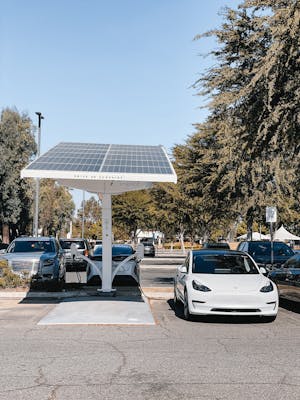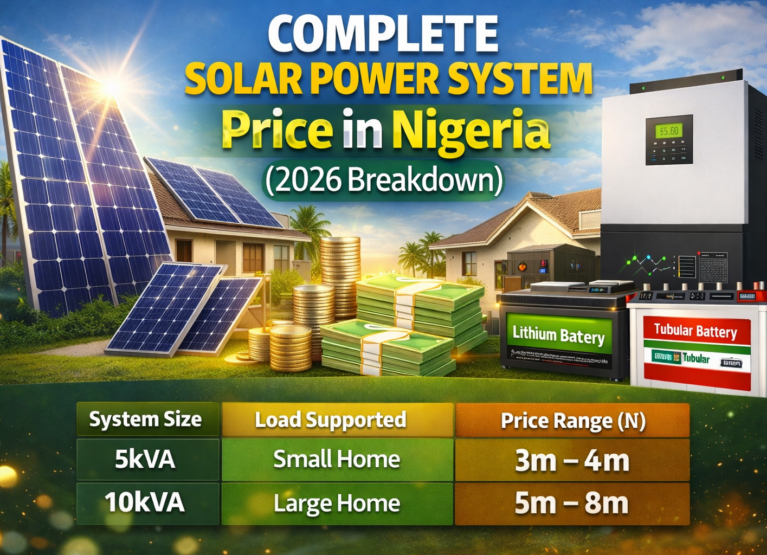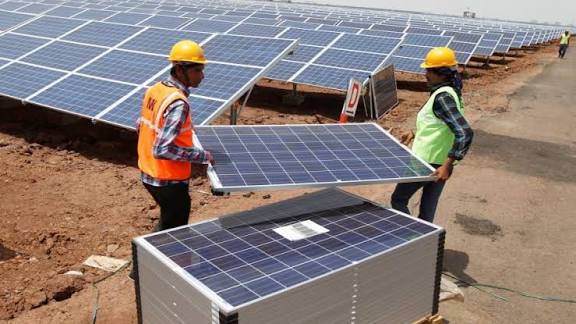Is Solar Energy a Reliable Source of Electricity in Nigeria’s Climate?
The unstable National grid plus higher electricity cost and power shortages has caused many Nigerians to question their available choices for electricity.
As a result of the aforementioned, many people and Businesses in Nigeria are gradually leaning towards solar system as a means of powering their homes and Businesses
But is solar energy reliable in Nigeria’s climate? The short answer is yes, there’s no question that Nigeria as a country is very blessed with abundant sunshine, in fact Nigeria is one of the best places in the world that could benefit from solar generation.
That’s why in this comprehensive Article, we’ll try and look at how best Nigeria climate supports solar system energy, we’ll also look at some of the challenges it faces as well as how well Arena Hub global can help Nigerians benefit from the immense solar opportunities in the country.
Nigeria’s Climate and Solar Potential
Geographically Nigeria as a country is located in the “tropical zone” which means the country usually experiences a high amount of sunlight every year.
Infact Nigerians receive an average of 5 to 7 hours of direct sun on a daily basis, this is more than enough to power your solar energy.
Sunlight Intensity and Energy Generation:
Nigeria is obviously located very close to the equator which helps to give the country a strong solar radiation.
What this simply means is that Nigeria is located in a very strategic place that allows it to generate a higher amount of Electricity daily.
If you are located in Northern Nigeria especially in regions like Kano State, Sokoto and Maiduguri, you’ll agree with me that these areas receive so much sunlight and the solar system will thrive greatly in these areas.
Even in Southern Nigeria, places like Owerri, Port Harcourt, Lagos and Enugu State where you can agree where there’s obviously more rainfall still produces enough solar energy for Businesses and homes, Now because of these Consistent sunlight in all parts of the country, we can categorically say that solar energy is a very reliable source of electricity in Nigeria
Why Solar Energy Is Reliable in Nigeria
You may choose to ask why we think solar energy is very reliable in Nigeria, we’ve examined Nigeria’s situation, and we can tell you in plain terms reasons why we think solar energy is very reliable in Nigeria.
Below are some of the reasons why you might have to consider solar installation in your Nigeria homes and Businesses.
1. Uninterrupted Power Supply
It’s no secret that Nigeria National grid blacks out from time to time, in fact in 2024 alone, the national grid collapsed more than five times and there’s also the issue of very unreliable electricity distribution, this has led to lots of Businesses and families in Nigeria to depend greatly on generators.
These generators has their own issues too, the cost of fueling them is no child’s play, the noise and air pollution will give you endless migraines, but with solar energy, you get to generate your own noiseless Electricity, infact a well installed solar system from Arenahub Global can actually provide you with a 24/7 interrupted Electricity for your home as well as your business.
2. Cost Savings on Electricity Bills
Every year, Electricity tariff in Nigeria keeps increasing at an alarming speed. Because of thisy, the cost of generating electricity from traditional power sources keeps getting higher, on the other hand, you have solar energy that gives you absolutely free energy once you’ve installed it.
After the money you’ll spend on panels, batteries and Installation, you’ll no longer have to pay a dime, no Monthly bills too, with this you can save millions of naira monthly as a business man by just switching to solar panels, as a homeowner, you can also cut how much you spend on buying fuels for your generators, sometimes you could end up saving up to N50,000 to N200,000 or even more monthly, and the sweetest part is that with Arenahub Global you are sure of getting very affordable solar system that would be perfect for your budget too.
3. Works Well Even in Rainy or Cloudy Weather
One of the worries of most Nigerians as regards solar system is the fact they’re worried it won’t work during the rainy season, well we are here to dispute those facts, with the modern Solar technology that’s available at our disposal, your solar panels can now absorb even a very small amount of sunlight and still produce quality Electricity for you.
All you have to do is to make sure you installed high quality panels, they’re capable of generating super energy even on cloudy days, the batteries of your solar panels helps to store excess energy that the produced during the day, these energy can then be used during cloudy days, that’s enough reason to get your batteries from us, at Arenahub Global, we make sure we provide our customers with very advanced solar batteries that they can use during night and rainy days too
4. Low Maintenance and Long Lifespan
If you are used to using generators in Nigeria, you would be Very used to frequent servicing of generator sets from time to time, however unlike Generator set’s that needs constant servicing as well as fueling.
Solar panels on the other hand needs little or no servicing at all, once we install your solar panels for you, they can actually last up to 25 to 30 years with little maintenance, all you need to do is to be cleaning your panels after every few months, then you change the battery after maybe 5 to 10 years, but if you still compare to your generators, you’ll discover that it’s still way cheaper than the constant servicing and fueling.
READ AlSO: What Are the Benefits of Using Solar Energy in Nigeria?
You know exactly how much a litre of fuel is in Nigeria. If you want to enjoy a brighter Electricity future in Nigeria today, you should make the switch to solar energy, trust us we’re here to make sure you switch to perfection.
 English
English
 French
French
 German
German
 Italian
Italian




